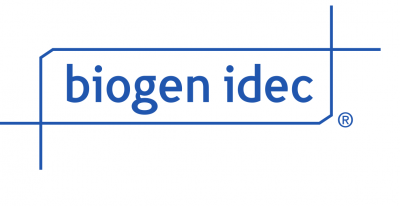New Relapsing-Remitting Multiple Sclerosis Drug Approved By FDA

 Biogen Idec, a biotechnology company focused on developing innovative therapies for the treatment of neurodegenerative diseases, hematologic conditions and autoimmune disorders, has announced that the U.S. Food and Drug Administration (FDA) has approved PLEGRIDYTM (peginterferon beta-1a), a new treatment for people with relapsing forms of multiple sclerosis (RMS). Furthermore, this drug has also been recently approved by the European Commission.
Biogen Idec, a biotechnology company focused on developing innovative therapies for the treatment of neurodegenerative diseases, hematologic conditions and autoimmune disorders, has announced that the U.S. Food and Drug Administration (FDA) has approved PLEGRIDYTM (peginterferon beta-1a), a new treatment for people with relapsing forms of multiple sclerosis (RMS). Furthermore, this drug has also been recently approved by the European Commission.
The most common forms of relapsing MS are relapsing-remitting MS (RRMS), characterized by acute attacks with full recovery or with residual deficit upon recovery and progressive-relapsing MS, characterized by a gradual deterioration of the disease with occasional acute attacks.
PLEGRIDY is a pegylated (the process of covalent attachment of polyethylene glycol polymer chains to another molecule) form of interferon beta-1a, a process that prolongs its half-life, allowing the molecule to be in circulation for longer periods of time and enabling a reduced dosing schedule.
This drug is injected subcutaneously to treat relapsing forms of MS in a once every two weeks dosage and administered either via the PLEGRIDY PEN, a ready-to-use autoinjector, or a prefilled syringe.
“PLEGRIDY offers people with MS robust efficacy, a safety profile consistent with the established interferon class, and significantly fewer injections than other beta interferon treatments. PLEGRIDY represents the most significant innovation in the interferon class in over a decade, and is the result of our deep commitment to improving the lives of people with MS and those who care for them”, said George A. Scangos, Ph.D., chief executive officer of Biogen Idec in a company’s press release.
The FDA approval of PLEGRIDY was based on results from one of the largest clinical studies of beta interferon. ADVANCE was a two-year, Phase 3, placebo-controlled trial involving more than 1,500 MS patients, with the objective of assessing the efficacy and safety of PLEGRIDY when administered subcutaneously.
[adrotate group=”4″]
The data showed that PLEGRIDY dosed once every two weeks significantly reduced relapses (36%), disability progression (38%), number of gadolinium-enhancing lesions (86%) and new or newly enlarging T2-hyperintense lesions (67%) when compared to placebo, with safety and tolerability profiles similar to those observed in current MS interferon therapies.
“PLEGRIDY is a compelling new treatment option for people living with MS that offers a proven safety profile, strong efficacy and an every two week dosing schedule administered by an innovative delivery system. As a treating neurologist, I believe these attributes will appeal to MS patients who look for less frequent dosing with proven effectiveness,” Peter Wade, M.D., medical director for neurology at the Mandell Center for Comprehensive Multiple Sclerosis Care and Neuroscience Research in Hartford, CT, also added in the press release.
These results are encouraging and provide additional treatment options that will aid patients suffering with RMS to control their disease.






